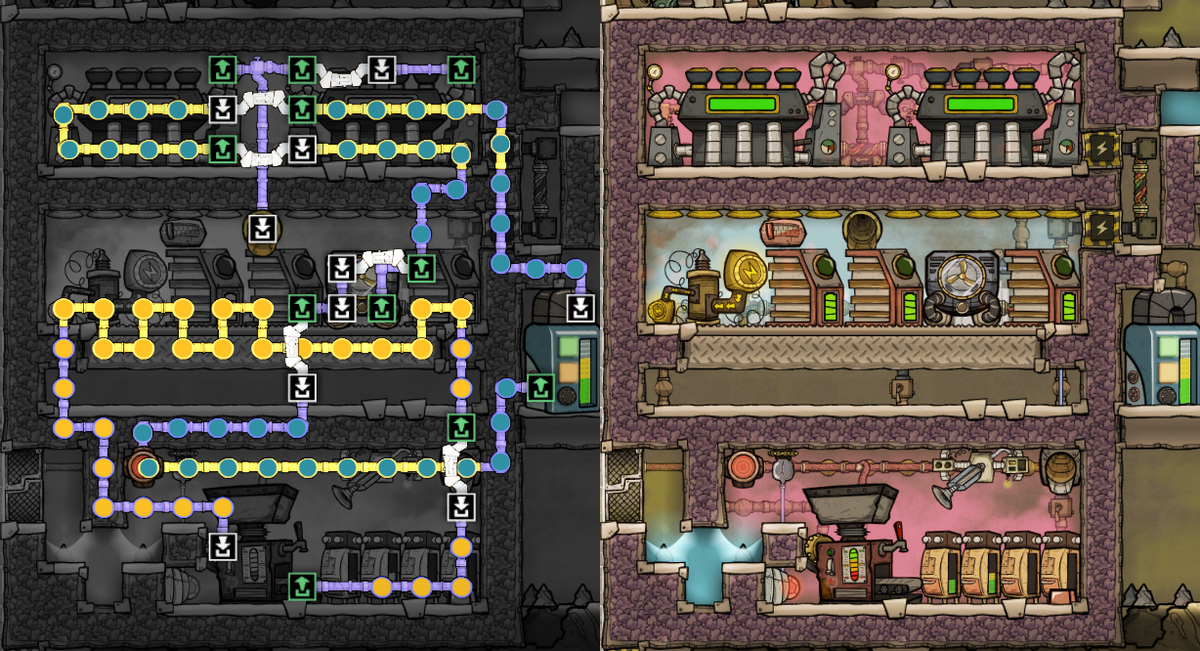Oxygen, the lifeblood of our planet, provides the foundation for all aerobic life on Earth. Conceiving a world devoid of oxygen unveils a somber reality fraught with unforeseen implications. In this exploration, we embark on a journey to unravel the catastrophic consequences that would ensue if oxygen were to vanish from our realm.

Image: www.slideshare.net
In the absence of oxygen, our planet would undergo a profound transformation, marked by drastic shifts in biological processes and environmental conditions. Let us delve into the multifaceted ways in which life would be irrevocably altered if this vital gas were to disappear.
Extinction of Aerobic Organisms
The immediate impact of oxygen depletion would be the mass extinction of aerobic organisms, which depend on oxygen for cellular respiration. In humans, oxygen deprivation—a condition known as hypoxia—sets off a cascade of biochemical reactions within minutes, eventually leading to organ failure and death. Rampant cellular damage and the inability to generate energy would consign countless species, from humans and animals to plants and microorganisms, to inevitable extinction.
Anaerobic Survival and Emergence of New Life Forms
Even in this bleak scenario, life would not cease to exist entirely. Anaerobic organisms—those capable of utilizing alternative energy sources without oxygen—would persist and even proliferate. Bacteria, for instance, possess metabolic pathways that derive energy from fermentation, generating byproducts such as ethanol, lactic acid, and carbon dioxide. Methane-producing archaea, flourishing in anoxic environments like marshes, would thrive. However, these creatures are notoriously slow-growing and inefficient, limiting the scope of complexity and diversity in an oxygenless ecosystem.
Over vast geological timescales, however, new life forms might evolve in this novel environment. Microbes with hitherto unthinkable modes of energy metabolism—perhaps utilizing geothermal heat or inorganic chemicals—could arise. These alien life forms would exemplify the remarkable resilience and adaptability inherent to life, proving that existence is possible even in conditions we may currently find unfathomable.
Geological Transformations and Climate Change
The oxygen depletion would profoundly reshape our planet’s geology and climate. No longer scavenged by atmospheric oxygen, reactive metals on the Earth’s surface, such as iron and manganese, would freely oxidize, changing the composition of soil, rocks, and the ocean floor. The Earth would adopt a duller, more metallic hue, resembling planets like Venus, characterized by reduced atmosphere and barren landscapes.
In an anoxic atmosphere, carbon dioxide levels would soar, as they could not be consumed by aerobic respiration or synthesized into oxygen through photosynthesis. This greenhouse gas buildup would hasten global warming, amplifying the already dire consequences predicted by climate change models. Temperatures would rise uncontrollably, melting the polar ice caps, raising sea levels, and unleashing devastating environmental upheavals.

Image: oxygennotincluded.fandom.com
Loss of the Ozone Layer and Heightened Radiation
Without oxygen, our protective ozone layer, responsible for absorbing harmful ultraviolet radiation from the Sun, would no longer be replenished. Solar radiation, unrestrained and intensified, would penetrate Earth’s atmosphere, damaging DNA, increasing the risk of skin cancer, and posing grave threats to sensitive ecosystems.
Permanent Alteration of the Cycle of Life
In an anoxygenic world, death would perpetuate a very different cycle. Decomposition—the breakdown of organic matter by aerobic bacteria and fungi—would cease, leaving organic material to accumulate. Dead organisms would not decay but instead become remnants in an Earth-bound sarcophagus, preserving long-gone species for posterity.
However, the absence of decomposition would create an imbalance in the global cycle of elements. Carbon, nitrogen, and other essential elements locked away in organic matter would not be recycled into the environment, hindering the ability of any new life that manages to evolve to access these vital resources.
What Would Happen If Oxygen Were Not Available
Conclusion
Envisioning a world without oxygen exposes the fragile equilibrium upon which life on Earth relies. Oxygen is not merely a gas we breathe, but the linchpin of biological and environmental processes. Without it, life as we know it would cease to exist, giving way to an eerie and alien world. As we grapple with the challenges of preserving our planet’s oxygen supply, may this thought exercise serve as a stark reminder of the importance of protecting this vital resource for our continued existence and well-being.